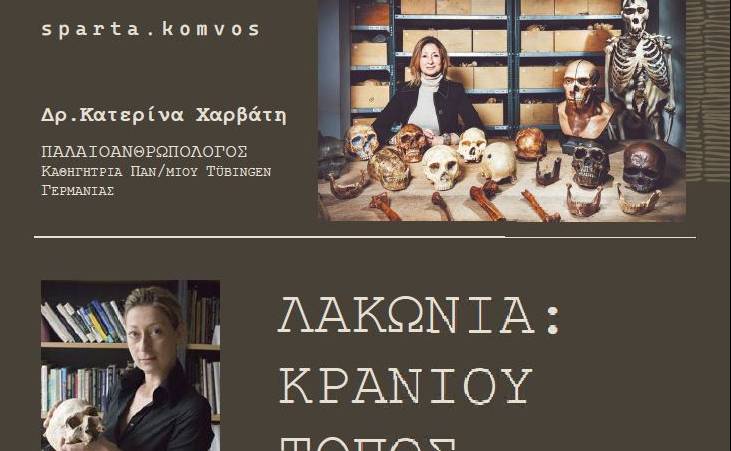sparta.komvos-Lakonia:Skull Place

Spread the word




On Wednesday, October 2nd, sparta.komvos hosts Katerina Charvati, Professor of Paleoanthropology at the University of Tübingen, Germany.
Ms Charvati enjoys international recognition in her field and, among others, has been awarded Germany's most important scientific honour, the Leibniz Prize (2021), along with significant funding for her research and her election to the German Academy of Sciences Leopoldina. Among other things, she oversees excavations at the Apidima cave in Mani, where, since 1978, research by the University of Athens led to the discovery of two prehistoric skulls. Ms Charvati and her team re-evaluated the findings using modern scanning, 3D imaging, and uranium dating methods. They concluded that the first skull belonged to Homo sapiens and the other to Neanderthal, with ages of 210,000 and 170,000 years, respectively, overturning previous assumptions. This discovery indicated the earliest migration of modern humans, Homo sapiens, into Eurasia, 150 thousand years earlier than previously thought.
Katerina Charvatis graduated in Anthropology from Columbia University in the United States in 1994 and received her PhD from the City University of New York in 2001. In 2004, her study on the place of Neanderthals in human evolution was published, and she began working as a researcher at the Max Planck Institute in Germany. In 2009, she was appointed professor at the Chair of Paleoanthropology at the University of Tübingen. In 2013-2022, in collaboration with the Ephorate of Paleoanthropology and Speleology and the American School of Classical Studies, Mrs Charvatis discovered in the Megalopolis lignite mine an abundance of sediments and fossils, among them the oldest dated prehistoric site in Greece to date.
Come for a fascinating tour of prehistoric Laconia and a discussion of the conclusions led by Mrs Charvatis' innovative research on the presence of humans in Laconia and Europe.

